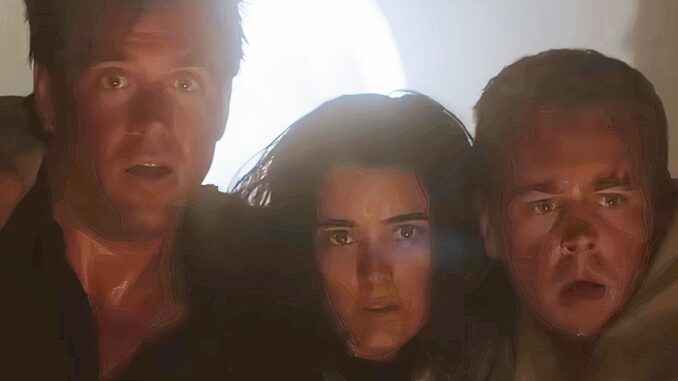
Few TV couples have inspired as much passion, debate, and endless speculation as NCIS’s Tony DiNozzo (Michael Weatherly) and Ziva David (Cote de Pablo). For years, their chemistry simmered beneath undercover missions, near-death escapes, and stolen glances — until their long-awaited first kiss in Season 11. But as every Tiva fan knows, that was also the moment de Pablo left the series, putting the brakes on what could have been television’s slowest burn romance finally realized.
And then came the twist no one saw coming.
By the end of Season 13, Tony learned that Ziva — presumed dead in a mortar attack — had secretly given birth to their daughter, Tali. That revelation not only explained Ziva’s absence but also set up Weatherly’s own emotional exit from the CBS juggernaut. But with the shocking reveal came one question that fans have debated for nearly a decade: when exactly was Tali conceived?
The Great Tiva Timeline Puzzle
The writers never gave a clear answer, and so fans have had to play detective. Some point to the gap between Ziva’s departure in Season 11 and Tony’s discovery in Season 13, noting that the show left enough time for the pair to reconnect off-screen. Others insist it must have been during one of Tony’s offhanded mentions of visiting Israel — quiet trips that the series never fleshed out.
For many, that ambiguity became part of the allure. Ziva’s pregnancy wasn’t just a twist; it was a hidden story tucked into the shadows of the NCIS timeline.
Michael Weatherly and Cote de Pablo Weigh In
With the launch of their Paramount+ spinoff NCIS: Tony & Ziva, the actors are finally addressing the question — sort of. In a recent sit-down with TVLine, Weatherly and de Pablo laughed their way through speculation about that fateful night.
“There’s a lot of mystery around it,” Weatherly teased. “But sometimes, mystery is more fun than certainty.”
De Pablo agreed, noting that part of what makes Tony and Ziva’s love story so compelling is what viewers don’t see. “We’ve always lived in the gray areas with these characters,” she explained. “Their relationship has never been neat or conventional. That’s why it works.”
From Tarmac Kiss to Parenthood
The actors also reflected on their bittersweet final scene together in Season 11, when Tony kissed Ziva goodbye on a tarmac in Israel. It was the moment fans thought was the end — only for the writers to surprise them years later with proof their bond never really broke.
The reveal of Tali, in many ways, reframed everything. What seemed like a goodbye became part of a much bigger love story, one that the new spinoff is now continuing to explore.
Revisiting Tiva in NCIS: Tony & Ziva
Beyond the question of Tali’s conception, Weatherly and de Pablo say their focus now is honoring the emotional journey of their characters. They tease flashbacks that show the struggles of Ziva choosing not to live with Tony and Tali right away, an action that broke Tony’s heart but also gave their story more layers.
Episode 3 even delivered their first true love scene — something NCIS itself always held back from showing. “It was important for us to give fans that intimacy,” de Pablo said. “Because after all these years, Tony and Ziva deserve it.”
And for longtime fans, the Easter eggs keep coming. From mentions of McGee to chase scenes that reminded Weatherly of classic Harrison Ford thrillers, the spinoff has leaned into nostalgia while carving out its own identity.

Why the Mystery Still Matters
So, when was Tali conceived? Even with the actors’ playful speculation, fans may never get a definitive answer — and maybe that’s the point. For a couple built on stolen moments, hidden truths, and long-distance longing, the off-screen mystery feels strangely fitting.
As one fan wrote on Reddit, “It doesn’t matter when. What matters is that it happened, because it means Tony and Ziva never really let go of each other.”
With Tony & Ziva gaining traction on Paramount+, one thing is clear: the timeline debates will continue, but they’re only part of a larger love story — one that still has plenty left to tell.